
Harvard College is the undergraduate college of Harvard University, a private Ivy League research university in Cambridge, Massachusetts. Part of the Faculty of Arts and Sciences, Harvard College is Harvard University's traditional undergraduate program, offering AB and SB degrees. It is highly selective, with fewer than four percent of applicants being offered admission as of 2022.
Executive education refers to academic programs at graduate-level business schools for executives, business leaders and managers, globally. These programs are generally non-credit and non-degree-granting, but sometimes lead to certificates, and some offer continuing education units accepted by professional bodies and institutes. Estimates by Business Week magazine suggest that executive education in the United States is an $800 million annual business, with approximately 80% provided by university-based business schools. Many traditionally upper tier schools, as well as business schools and other academic institutions, offer these programs.
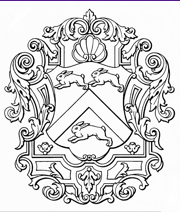
Leverett House is one of twelve undergraduate residential Houses at Harvard University. It is situated along the north bank of the Charles River in Cambridge and consists of McKinlock Hall, constructed in 1925; two 12-story towers completed in 1960; and two floors of 20 DeWolfe Street, a building Leverett shares with two other houses at Harvard. It has the largest student population within the Harvard house system.
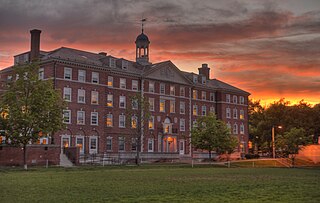
Cabot House is one of twelve undergraduate residential Houses at Harvard University. Cabot House derives from the merger in 1970 of Radcliffe College's South and East House, which took the name South House, until the name was changed and the House reincorporated in 1984 to honor Harvard benefactors Thomas Cabot and Virginia Cabot. The house is composed of six buildings surrounding Radcliffe Quadrangle; in order of construction, they are Bertram Hall (1901), Eliot Hall (1906), Whitman Hall (1911), Barnard Hall (1912), Briggs Hall (1923), and Cabot Hall (1937). All six of these structures were originally women-only Radcliffe College dormitories until they were integrated in 1970. Along with Currier House and Pforzheimer House, Cabot is part of the Radcliffe Quad.
Harvard College has several types of social clubs. These are split between gender-inclusive clubs recognized by the college, and unrecognized single-gender clubs which were subject to College sanctions in the past. The Hasty Pudding Club holds claim as the oldest collegiate social club in America, tracing its roots back to 1770. The next oldest institutions, dating to 1791, are the traditionally all-male final clubs. Fraternities were prominent in the late 19th century as well, until their initial expulsions and then eventual resurrection off Harvard's campus in the 1990s. From 1991 onwards, all-female final clubs as well as sororities began to appear. Between 1984 and 2018, no social organizations were recognized by the school due to the clubs' refusal to become gender-inclusive.
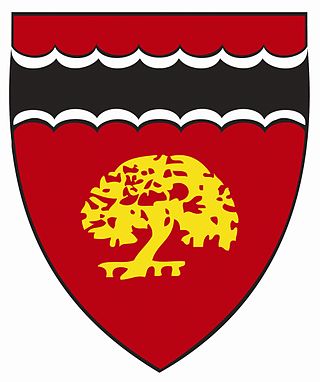
Currier House is one of twelve undergraduate residential Houses of Harvard College, in Cambridge, Massachusetts, United States. Opened in September 1970, it is named after Audrey Bruce Currier, a member of the Radcliffe College Class of 1956 who, along with her husband, was killed in a plane crash in 1967. The area was formerly used as housing for Radcliffe College, and as such the four towers of Currier House are named for distinguished alumnae of Radcliffe, including the author Barbara Tuchman. Along with Cabot House and Pforzheimer House, Currier is part of the former Radcliffe Quadrangle, known colloquially as simply "the Quad."
Michael Cole "Mike" Jensen is an American economist who works in the area of financial economics. Between 2000 and 2009 he worked for the Monitor Company Group, a strategy-consulting firm which became "Monitor Deloitte" in 2013. He holds the position of Jesse Isidor Straus Professor of Business Administration, Emeritus, at Harvard University.

The Isenberg School of Management is the business school and also the second largest school at the University of Massachusetts Amherst, the flagship campus for the University of Massachusetts system. The Isenberg School is accredited by the AACSB International and ACPHA.
Ronald S. Sullivan Jr. is a law professor at Harvard Law School. Sullivan graduated Phi Beta Kappa from Morehouse College in 1989 and received his Juris Doctor from Harvard Law School in 1994. Prior to joining the Harvard Law School faculty, Sullivan served as the Director of the Public Defender Service for the District of Columbia.
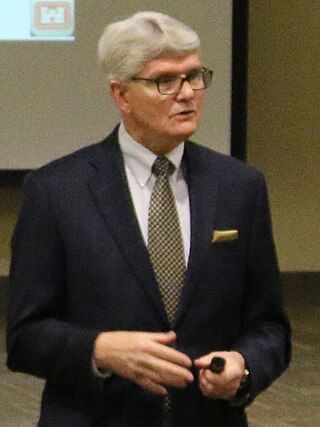
Kim Sterling Cameron is the William Russell Kelly Professor of Management and Organizations at the Ross School of Business at the University of Michigan. He was formerly the dean of the Weatherhead School of Management at Case Western Reserve University. He has also served as associate dean at both the Marriott School of Management at Brigham Young University (BYU) and in the Ross School of Business.
Leadership studies is a multidisciplinary academic field of study that focuses on leadership in organizational contexts and in human life. Leadership studies has origins in the social sciences, in humanities, as well as in professional and applied fields of study. The field of leadership studies is closely linked to the field of organizational studies.
MBA Oath is a voluntary student-led pledge that asks graduating MBAs to commit towards the creation of value "responsibly and ethically". As of January 2010, the initiative is driven by a coalition of MBA students, graduates and advisors, including nearly 2,000 student and alumni signers from over 500 MBA programs around the world. By formalizing a written oath and creating forums for individuals to personally commit to an ethical standard, the initiative hopes to accomplish three goals:
- to make a difference in the lives of the individual students who take the oath,
- to challenge other classmates to work towards a higher professional standard, whether they sign the oath or not, and
- to create a public conversation in the press about professionalizing and improving management.
Nitin Nohria is an Indian-American academic. He was the tenth dean of Harvard Business School. He is also the George F. Baker Professor of Administration. He is a former non-executive director of Tata Sons.
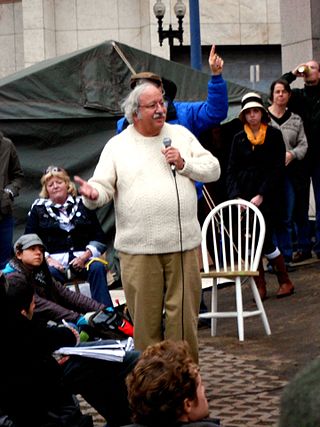
Marshall Ganz is the Rita T. Hauser Senior Lecturer in Leadership, Organizing, and Civil Society at the Kennedy School of Government at Harvard University. Introduced to organizing in the American civil rights movement, he worked on the staff of the United Farm Workers for sixteen years, became trainer and organizer for political campaigns, unions and nonprofit groups, and returned to Harvard where he earned his PhD in Sociology (2000). He is credited with devising the successful grassroots organizing model and training for Barack Obama’s winning 2008 presidential campaign.
For the English former footballer, see Wayne Baker (footballer). For the American former NFL player, see Wayne Baker.
Mikołaj Jan Piskorski who often goes by Misiek is Dean of IMD Asia and Oceania and a Professor of Strategy and Innovation at IMD Business School. He is known for his research in the area of digital transformation, on-line social platforms and study of how companies leverage social platforms to improve their profitability.

The Harvard Undergraduate Council, Inc., colloquially known as "The UC," was the student government of Harvard College between 1982 and 2022, until it was abolished by a student referendum.
Robert Aaron Gordon was an American economist. He was a professor of economics at the University of California, Berkeley from 1938 to 1976. In 1975, he served as president of the American Economic Association.
Claudine Gay is a political scientist and professor serving as the 30th president of Harvard University. Assuming office in 2023, she became the university's first black president 368 years after its founding. Prior to becoming the university's president, she served as the Edgerley Family Dean of Harvard Faculty of Arts and Sciences and the Wilbur A. Cowett Professor of Government and of African and African-American Studies. Gay's research addresses American political behavior, including voter turnout and politics of race and identity.
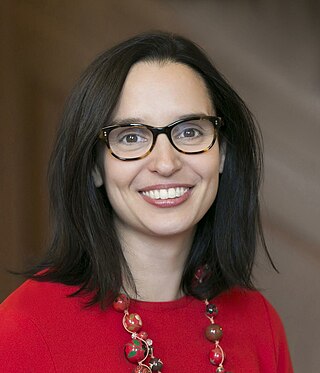
Julie Battilana is a scholar, educator, and advisor in the areas of social innovation and social change at Harvard University. She is the Joseph C. Wilson Professor of Business Administration at Harvard Business School and the Alan L. Gleitsman Professor of Social Innovation at the Harvard Kennedy School.









